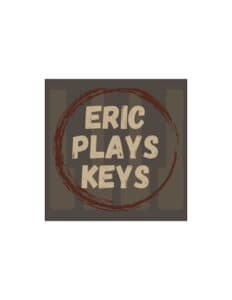
During my senior year in high school, this was a question that myself and SO many of my peers struggled to answer as we decided our future educations. It’s always difficult mapping out your future, especially with limited information. I ended up choosing to study engineering, using one single piece of advice I received from a mentor:
You should study music in college if you can’t envision yourself in a different career. If you can see yourself doing something else, then study that subject and continue to pursue music in whatever way makes you happiest.
This was some of the most helpful advice I’ve ever gotten. I’ll dive deeper into how this framework helps you make your decision, as well as some other music degree considerations you’ll want to think about.
Is it a Good Idea to Study Music in College?
Following the advice above, it’s essential to dig deep and imagine yourself pursuing alternative careers to music. Can you see it in your head? If you had to pick a career other than music, do you know what it would be? Are there other subjects in school that you’ve enjoyed learning about? Look to your hobbies, interests, and other skills to evaluate potential career options, and see what you come up with. Do any of these options sound viable and/or enjoyable to you?
Next, think about your potential career in music. Will it be satisfying? Is music the only thing that interests you? Are you much better at music than you are at anything else? Make sure to be honest with yourself answering these questions.
Finally, put these two imagined careers side by side, and think on it. From what I have seen, careers in music are often very difficult financially. Meanwhile, my engineering degree has enabled me and many peers to be financially comfortable upon graduation. This is why I recommend for you to try and find a reason to not study music. If you try to find one, and succeed, then your financial outlook will likely be improved. However, if you fail to find a reason not to, then I highly recommend following your one and only passion and live the life you’re meant to.
I know this seems like a lopsided approach, heavily favoring the argument to not study music. This is because studying music in college usually constrains you to full-time work as a professional musician, somewhat limiting your career options. On the other hand, studying disciplines other than music do not necessarily prevent you from being a musician. The major caveat here is if your career goals are to play in an established orchestra, become a music teacher at a music school, or other gigs that are known to require credentials.
I’ll share my personal experience with this question in the hopes that it will help provide some context here. My senior year of high school, I was very passionate about jazz piano and many music teachers recommended that I continue my studies in college. On the other hand, I also enjoyed biology and engineering, both of which I knew could result in high-paying jobs. My music teachers and music peers all expected me to choose to study music, while my family and friends pushed me to choose the engineering degree. I felt a lot of pressure, and at that age I definitely was not smart or wise enough to know what I wanted my future to be.
When I received the advice ‘study music if you can’t see yourself doing anything else’, it clicked with me. From that point on, the decision was easy. I took the engineering route, which provided a much safer career path and eased my family’s concerns. This DOES NOT mean I stopped playing, however. I spent a lot of time in college playing gigs throughout the area, taking music classes, teaching myself, going to jam sessions, and playing in the school’s bands. I basically got the best of both worlds; I now have a good and stable job from my engineering degree, and still play music professionally around town.
What I’m NOT saying is that there’s no value in a music degree. If you are 100% committed to music, and music is what your life is about, then you would be doing yourself a disservice by passing on a music degree. The mentorship you can get from experienced musicians is priceless, and your peers will motivate you like no-one else can. Many of my friends that went to good music schools came out on the other end absolutely transformed, both as musicians and people. I only got small tastes of this when I took occasional lessons and interacted with the music departments at mine and my friends’ schools, and I know I missed out.
If you are interested in pursuing music, but not as a means to earn your primary income, check out my article ‘How to Make Playing Piano a Great Hobby‘.
Learning Music in College Without the Degree
So let’s say you’ve chosen to study a different field – does that mean your music career is over? Absolutely not. Whether you want to play professionally, as a side hustle, or as a hobby, you’d better keep honing your skills. First, I’d scope out the music department at whatever school you choose. Do they have non-music major classes? Do they have a minor? Are there bands that the general student population can play in? There’s lots of ways to get involved formal music education, even without declaring music as your major.
On top of any education you can find at your school, there’s so many online resources at your disposal. First is Youtube, which contains so many videos from teachers covering a wide variety of subjects. In addition, you can listen to your favorite musicians play at 0.5x speed and transcribe what you hear. You may also consider online teaching platforms like Udemy and Skillshare, which contain a lot of good classes as well.
What I did when I started college was sign up for the school’s jazz band, where I met several older students who knew the lay of the land. Although I didn’t play in the band for long, I started to connect with a few musicians in the community. After a year or so of slowly getting to know the music scene and attending jam sessions, I started gigging a little bit. Those gigs led to a few more, and over the years I established myself as a capable jazz and pop keyboard player that other musicians could call for gigs. I got lots of great experience from these gigs, and I consulted Google and Youtube every time I wanted new material to learn. Occasionally, I contacted old teachers and took a lesson or two, just to get a second opinion every once in a while.
For my full guide on how to improve your piano skills without teachers, check out this article.
Is a Music Degree Necessary?
A music degree is necessary for individuals who wish to pursue a full-time career as part of an established orchestra or university. A music degree is not required to informally gig and teach, although it may help.
There are definitely some career paths within music that will require you to get a degree. For example, to teach music at a university you’ll absolutely need that credential. Many orchestras require a degree, and you may find that sessions musicians commonly have degrees as well. However, if you’re hoping to take a more freelance route, what really matters is that you can market yourself well and you can play.
Key words: you can play. If you sound really good, then you’ll be able to find work, regardless of your credentials. What’s trickier to nail down is whether getting a degree in music will enable you to get your playing to the next level, or if you can do it on your own. From what I’ve seen, studying music is a huge benefit to increase your skills for a lot of students. Of course, I’ve seen students go through music school and not sound great, and I’ve seen others develop into killing musicians without it. Joshua Redman studied social studies, and still wound up one of the best tenor saxophone players in jazz these days. However, it’s hard to say whether everyone has the same gifts he has.
Overall, for the established career paths, the music degree is necessary. For the freelance paths, the music degree is not necessary but certainly helpful to a lot of folks.
